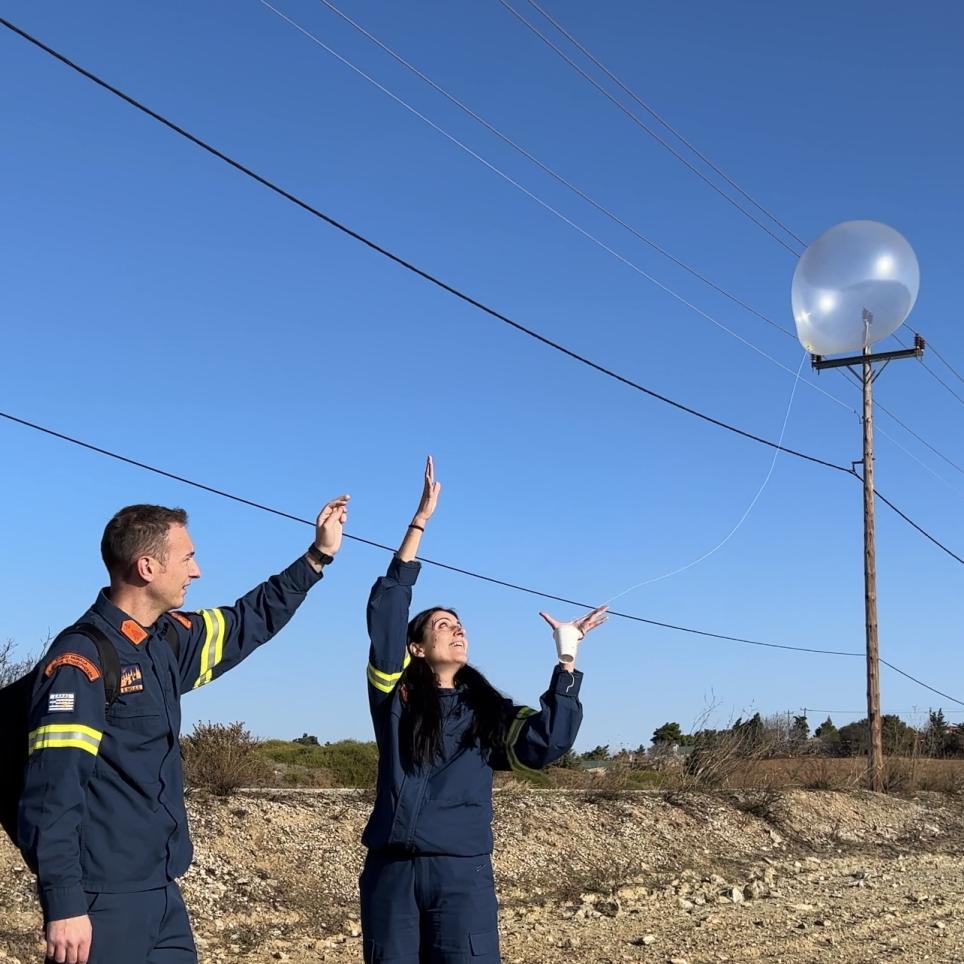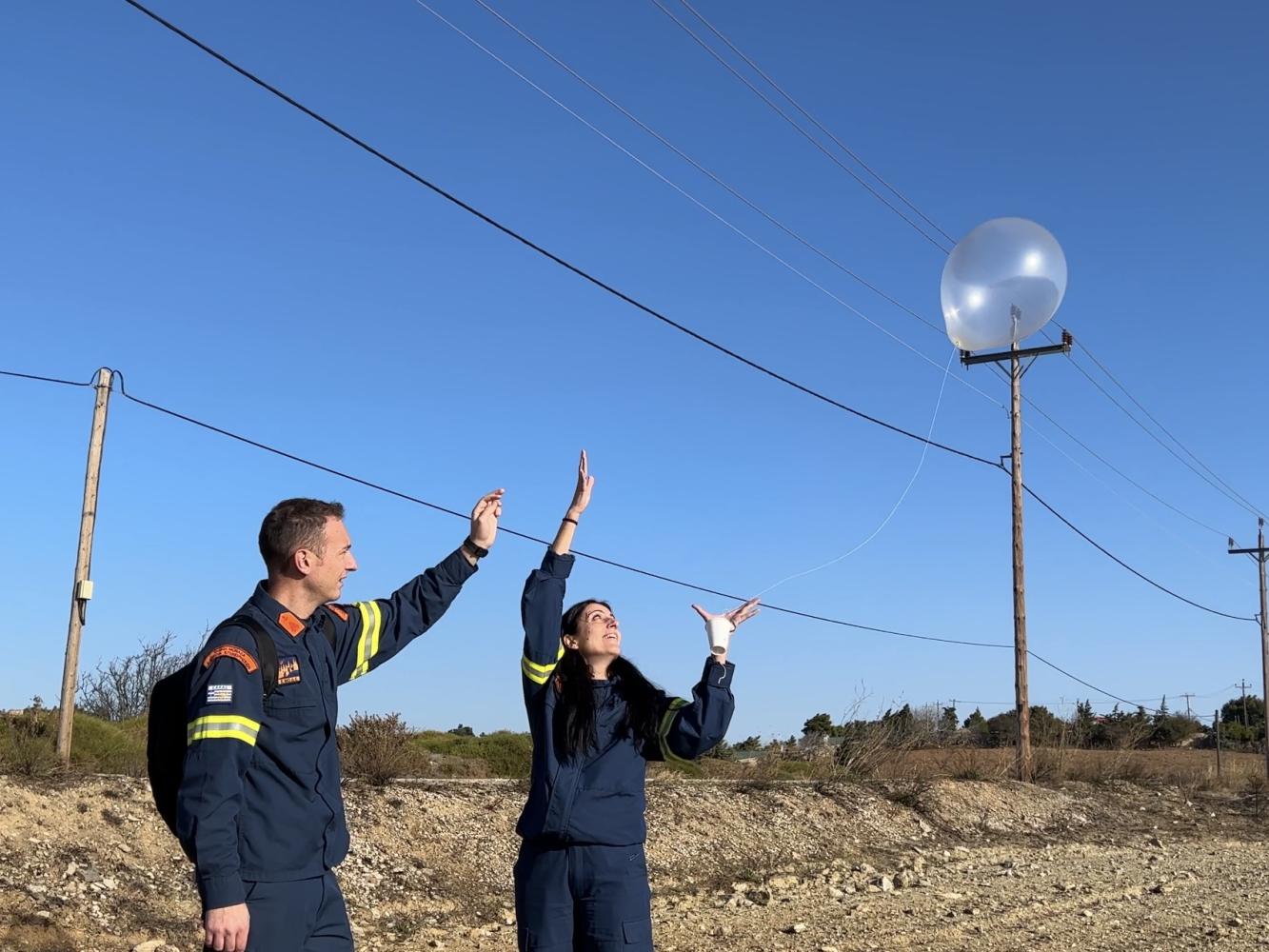From 26 to 28 November, representatives of the six European partner institutions of the EWED project met in Athens, Greece, to review the progress EWED has made so far, plan the next actions, and discuss the behaviour of recent wildfires and collaboration with the FIRE-RES project. The event, hosted by the Hellenic Fire Service (HFS), has been a meeting point for fire services, scientists and staff from non-profit organisations from Greece, Spain, the Netherlands and Norway to advance the understanding of Extreme Wildfire Events (EWEs).
The meeting consisted of project task-centred sessions, at the Stavros Niarchos Foundation (SNF) HFS Training Centre in Nea Makri, and a field trip to the 2024 Varnavas fire. This fire burned 10413.8 Ha over a few days last August, affecting 33 communities in the Attica region. Its unpredictable behaviour challenged the firefighting capacity, something projects such as EWED and FIRE-RES aim to overcome by generating data, knowledge and resources to aid decision-making in dealing with EWEs. The visit allowed professionals from different countries and expertise to reflect on the event and exchange knowledge on preparing for future extreme wildfires.
On one hand, we talked a lot about wildfires happening all over Europe and that there might be more, even in the north. On the other hand, our meeting added value to the work of our scientific team by talking with us practitioners and thus seeing why the models and simulations they are developing are important to us. Finally, this was an opportunity to meet colleagues from the consortium in person for the first time. By connecting with people face to face you can understand their ideas, feel their passion and inspire each other.
The field trip included a practical exercise to launch a radiosonde and assess the application of the method for data collection during EWEs developed by EWED partners (available in English and Spanish on the EWED website). By using radiosondes, fire services can collect data on the vertical profile of the atmosphere, fire behaviour, smoke plume characteristics and wildfire properties. The EWED project is using the data collected in partner countries to develop models of the fire-atmosphere interaction during EWEs and simulations of these phenomena, which will be publicly available at the end of 2025 on an open data portal.
The gathering in Athens also included an exchange session with FIRE-RES, a European project aiming to develop resilience to EWEs in Europe, and of which EWED partner the Catalan Fire and Rescue Service (CFRS) is also part. FIRE-RES explained their work on the challenges of facing EWEs, such as managing the uncertainty associated with these events and providing certainty in a context where great background noise exists.
We (FIRE-RES) have participated in the EWED meeting to identify common lines of work and generate space for collaboration and synergies. In this sense, there’s potential work around three main pillars: establishment and measurement of key atmospheric parameters, development of effective tools and strategies to eliminate uncertainty in EWE scenarios and facilitate decision-making, and reliable, accurate and helpful communication before and during the emergency.
2025 will be the second and last year of EWED, and when the consortium will generate most of its results. Among them are the publication of guidelines and recommendations to strategically plan for EWEs, a training event for practitioners, and the launch of the open data portal mentioned above.
Sectors
Risk drivers

